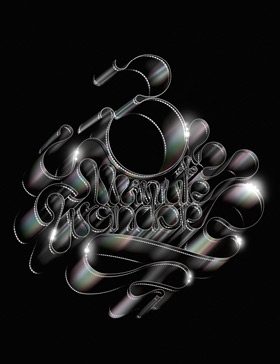Lubalin Now
POSTED ON: November 2, 2009
 November 5 through December 8
November 5 through December 8
Lubalin Now is the Lubalin Center’s inaugural exhibition at 41 Cooper Square, showcasing some of the best in contemporary graphic design that reflects the formal and conceptual approach of pioneering designer Herb Lubalin’s work and legacy. Curated by Assistant Professor Mike Essl (A’96) and adjunct instructor Alexander Tochilovsky (A’00), the exhibition also marks the debut of The Herb Lubalin Study Center of Design & Typography in its new space, in the college’s state-of-the-art academic building at 41 Cooper Square.
The featured graphic artists continue to be inspired by Herb Lubalin’s typefaces and visual style in their work.On view are recent posters, publications and motion graphics by internationally recognized graphic designers.Original sketches,magazines, logotypes and posters selected from the Lubalin Center Archive will illuminate Lubalin’s influence in design.
Artists represented in Lubalin Now include Marian Bantjes, Deanne Cheuk, The CW Network In-house department, Ariel Di Lisio, Marcus Eriksson, Oded Ezer, GrandArmy, Gretel, Jessica Hische, Hunter Gatherer, Justin Thomas Kay, Like Minded Studio, Brett MacFadden, Christopher Martinez, Non-Format, Matt Owens, Post Typography, Roberto Quiñones, Strange Attractors Design, Alex Trochut, TV Land, Rick Valicenti and Herb Lubalin.




